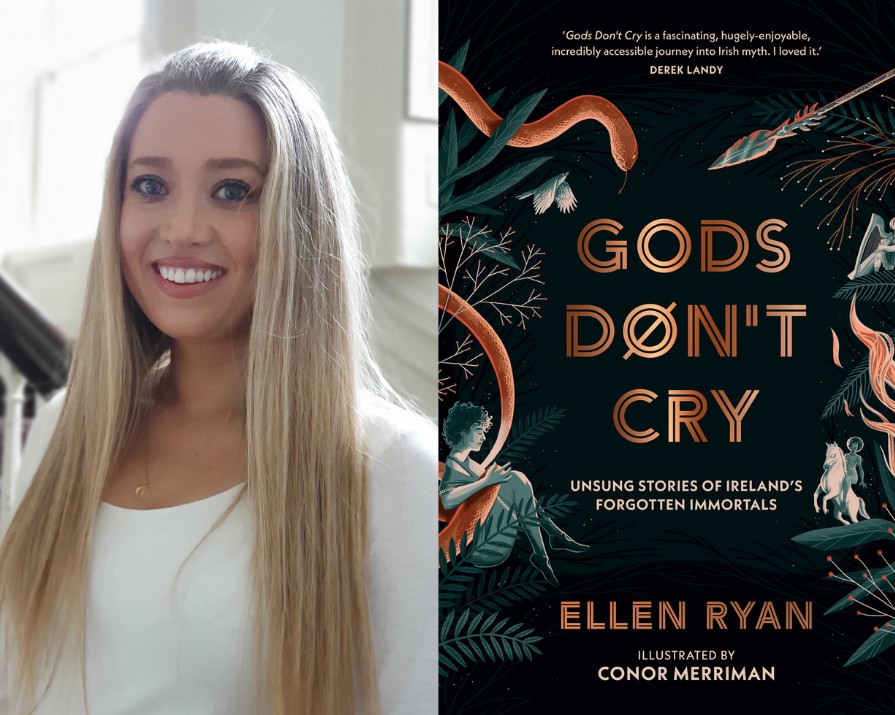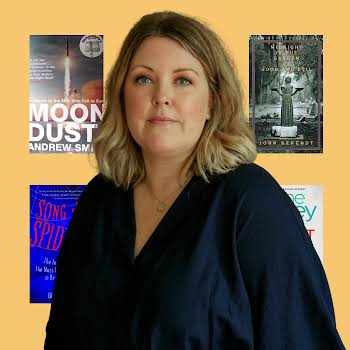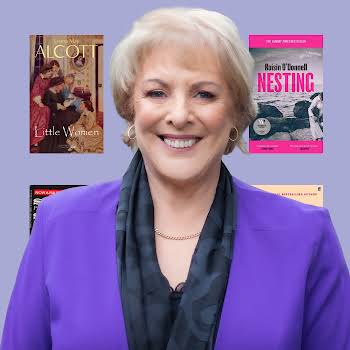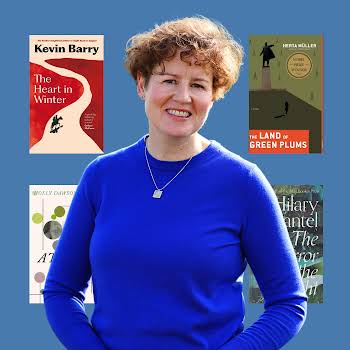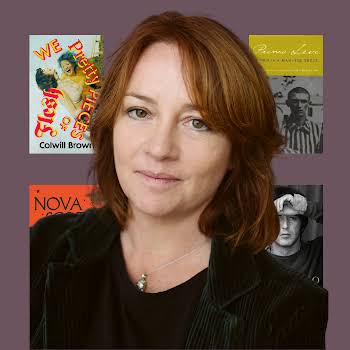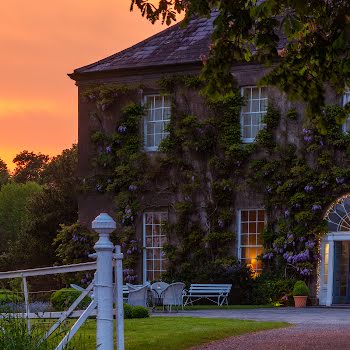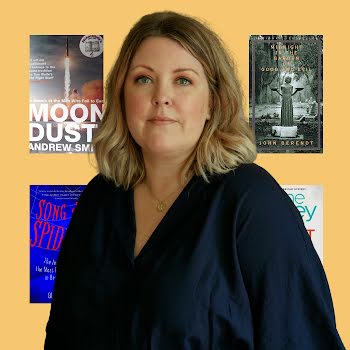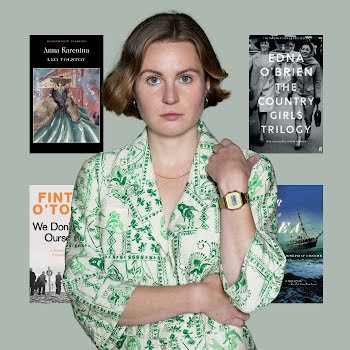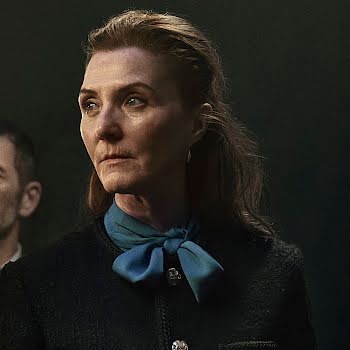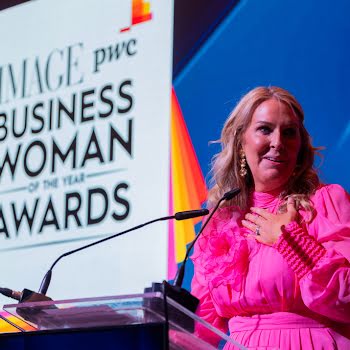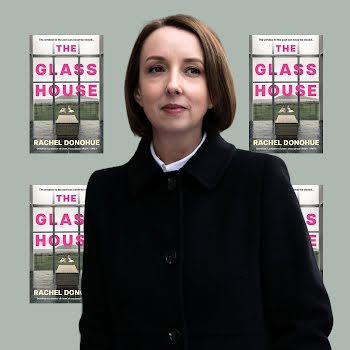By Sarah Gill
01st Nov 2023
01st Nov 2023
Here, we catch up with writer and journalist Ellen Ryan to chat about everything from her literary greats to her journey from PR to children’s book author.
Ellen Ryan is a writer and journalist from county Wicklow, whose debut book, Girls Who Slay Monsters: Daring Tales of Ireland’s Forgotten Goddesses won both the Children’s Books Ireland KPMG Book of the Year Award and the Children’s Books Ireland KPMG Junior Juries Award, 2023. Now, Gods Don’t Cry, has been shortlisted for Children’s Book of the Year Senior in the An Post Irish Book Awards.
Gods Don’t Cry reawakens the gods of Ireland, whose ancient tales redefine modern ideas of what it means to be a hero. From Mannanán, who uses his neurodiversity to discover the Otherworld, to Méiche, who finds the courage to accept his illness, Fer Maisse, a monster slayer who gives up glory to become a healer, and Cnú Deróil, who overcomes bullies with his musical talent. Hurlers and warriors, academics, and activists – these are gods of many abilities, sizes, and skin shades, from every corner of Ireland.

Did you always want to be an author?
Yes, but even after studying journalism, I didn’t have the confidence to go for it. I also feared the financial insecurity. So, I took a ‘safer’ career path and worked in public relations. In that profession, it was always the writing I enjoyed most. Even if that was a press release on the benefits of sweetcorn.
What inspired you to start writing?
After eight years of working for others in PR, I took a big risk by going freelance, and it paid off. That success made me less afraid of failing in other areas of my life. It also gave me the flexibility to make room for writing, while still supported by a salary. So, I started submitting articles to newspapers and when they were well received, I was ready to take the risk of writing a book.
Where did the idea for this book come from?
When I was a teenager taking classical studies, and in awe of Greek gods, my grandma, Carmel Wood, stepped in to share her extensive knowledge of Irish myth. She taught me that our ancient tales were just as worthy as the Classics, and we regularly spoke for hours on the subject. Years later, I visited Rathcroghan archaeological site, and learned the land there was linked with gods, many of whom I had never heard about. I wondered how many more gods might exist in this secret Irish pantheon. I went digging and discovered gods like Dian Cécht, the divine healer, and Bé Chuille, the demon slayer. I had a strong conviction that Irish children deserved to know their incredible stories. I started with retellings of the goddesses, who I felt had been most overlooked. But the stories of the male gods, retold in my new book, are just as inspiring to me because many of their ancient tales redefine modern notions of what it means for a man to be a hero.
Tell us about your writing process.
As my stories are retellings of ancient myths, I never stop researching. We have a wealth of sources for some Irish gods, but for most, there is little to be found. In these cases, I investigate every possible avenue to build their story, from the etymology of their name to their connections with other gods. An example of this would be Aillén, a god who set fire to the Royal Hill of Tara every year, for no obvious reason, other than the implied joy of villainy. But I discovered a line in one medieval manuscript, suggesting Aillén was a half-sibling of Áine, a goddess once ‘kissed’ by a king, without her consent. Pairing Áine’s story with Aillén showed me a brother, who, driven by a desire to protect his sister, burned down Royal Tara to protest an abuse of power. A creative leap perhaps, but far more plausible than ‘he did it because he was bad’. And a story as relevant now, as thousands of years ago.
What comes first, the plot or the characters?
For me, the characters. Even when one of my stories has an intricate plot and lots of action, I always begin with the characters. They take me over and I feel compelled to share their stories, which sees me through the trickier stuff, like fixing continuity errors and tedious edits.
What did you learn when writing this book?
In the research stage, I learned what a deer smells like, the many medicinal uses for meadowsweet, the lifespan of an atom (very long), the ethnic origins of the Irish people and much more. But in writing my characters and their stories, I learned to put myself inside the minds and hearts of boys, and men. I think I’ve gained more empathy and understanding as a result. More specifically, I have tried to put myself in the mind of a sea god of colour, an Arabian-Irish spellcaster, a warrior with a disability, a shapeshifting refugee and more. For me, writing is a privilege and an adventure.

Do you have any quirky habits when writing?
In the first draft phase, I close my curtains and write in the dark, like a teenager with too many feelings. I think it focuses me, by depriving my senses of anything other than words on a computer screen. At least that’s what I tell myself to make it sound more respectable.
The first book you remember reading is…
Mandy Mouse’s Birthday – that was the book my mam first used when teaching me how to read.
Your favourite Irish author is…
An impossible question! As a child, I loved Walter Macken and Marita Conlon McKenna. As a teen, I discovered Seamus Heaney and Joseph O’Connor. As an author, I am inspired by the storytelling of Catherine Doyle, Derek Landy and Eoin Colfer. As an Irish woman, I find Manchán Magan integral. And I haven’t even mentioned Mike McCormack, Edel Coffey, Louise Kennedy… I’ll be kicking myself over who I’m leaving out.
The book you gift everyone…
Depends on the age of the reader. My daughter is five and has a new birthday party to attend every week, it seems. I buy all her friends The Fox and Son Tailors by Paddy Donnelly, which beautifully champions self-belief, individualism, and the father and son bond.
You overcome writer’s block by…
Resting. It’s infuriating when your body won’t comply, and you sit in front of the screen, just staring. But I know myself well enough by now to accept defeat and take a few days off. It sometimes feels like a setback, but it’s preferable to pushing through and possibly burning out.
Do you listen to music when you write?
Only when writing fight scenes.
The best money you ever spent as a writer was on…
Attending the Children’s Books Ireland (CBI) International Conference, every September. I came into the book world knowing no-one, and through this conference, became part of a wonderful community. Writing is a solitary process, but I have colleagues now – friends – to bounce ideas off and share hopes and fears. Also, the authors chosen to speak each year never fail to inspire and uplift. I am in awe of the CBI team and the work they do for children’s authors, and the readers we serve.
The three books you’d bring with you to a desert island are…
Eckhart Tolle’s The Power of Now, to help quell any sense of panic. Alan Nolan’s new novel, Double Trouble at the Dead Zoo, because it’s impossible to feel lonely with a funny book and Nolan never fails to make me laugh. And Gabriel García Márquez’s Love in the Time of Cholera, because I first read this gem during an Irish heatwave so, rightly or wrongly, I consider it the perfect beach read.
A quote you love is…
If it makes you happy, it doesn’t have to make sense to others. In the early days of writing my first book, I had to remind myself of this regularly, when I had no expectation of success, and feared making an eejit of myself.
The book you always return to is…
Jurassic Park by Michael Crichton, for some escapism, and because it’s one of the greatest novels of all time.

Seeing your book in shops is…
A surreal experience, no less with my second book, than the first. Sometimes I get the sense that I have printed the books myself and put them on the shelf. I struggle with the concept that an actual publisher created the books, and an actual bookshop chose to stock them.
One book you wish you had written is…
Savage Her Reply by Deirdre Sullivan because it is a masterful retelling of The Children of Lir, from the perspective of the ‘evil stepmother’, Aífe. Those swans have been overdue a retelling for hundreds of years now, and Deirdre’s version is the greatest there has ever been or ever will be. Her work is powerfully feminist, her writing so evocative you can practically taste the words. She is a force.
How do you use social media as an author?
Reluctantly. I try to post once a week or so – usually about books I’m reading, books I’m writing, and the odd update on family life.
Should books be judged by their covers? How did you pick yours?
Books probably shouldn’t be judged by their covers, but are, so I’m forever grateful to HarperCollins for teaming me with world-class illustrators – Shona Shirley McDonald and Conor Merriman – and for the care they take in ensuring my books are as striking as possible. The publishers also invite me to collaborate, from choosing internal illustrations to showcase, to having a say on text fonts. I greatly appreciate such a working relationship.
Do you find it hard not to procrastinate when writing?
Hugely. My main procrastination methods are falling down research holes, overthinking all my ideas, and rewriting weeks of work on a whim. But more experienced authors assure me this is a valid part of the process.
The best advice you’ve ever gotten is…
Most recently, it was from my dad, who introduced me to the concept of KISS – Keep it Simple, Stupid. Did I mention I’m prone to overthinking when I write?
Your work space is…
Plant heavy, and white. The tone of my work can be influenced by evocative artwork and stirring music – but not always to its benefit. So, I keep my space neutral and let my emotion and ideas stem from the page. But I do admire the colourful, chaotic writer spaces that I see on Instagram.
Your favourite literary character of all time is…
Marian Halcombe, one of the protagonists of The Woman in White by Wilke Collins. I had just finished college and was working in a boring job, when I discovered this Victorian tale full of madness and murder. Lunchtime was the best part of my day, and I sprinted to the canteen to maximise reading time. I wanted to befriend, possibly become Marian. I fell into a paradox of rushing to read the book while trying to eek it out, to prolong the pleasure. When the inevitable happened, and I finished reading, I knew it was time to get a more interesting job.
Ellen’s book, Gods Don’t Cry, has been shortlisted for Children’s Book of the Year Senior in the An Post Irish Book Awards. To vote, click here.











